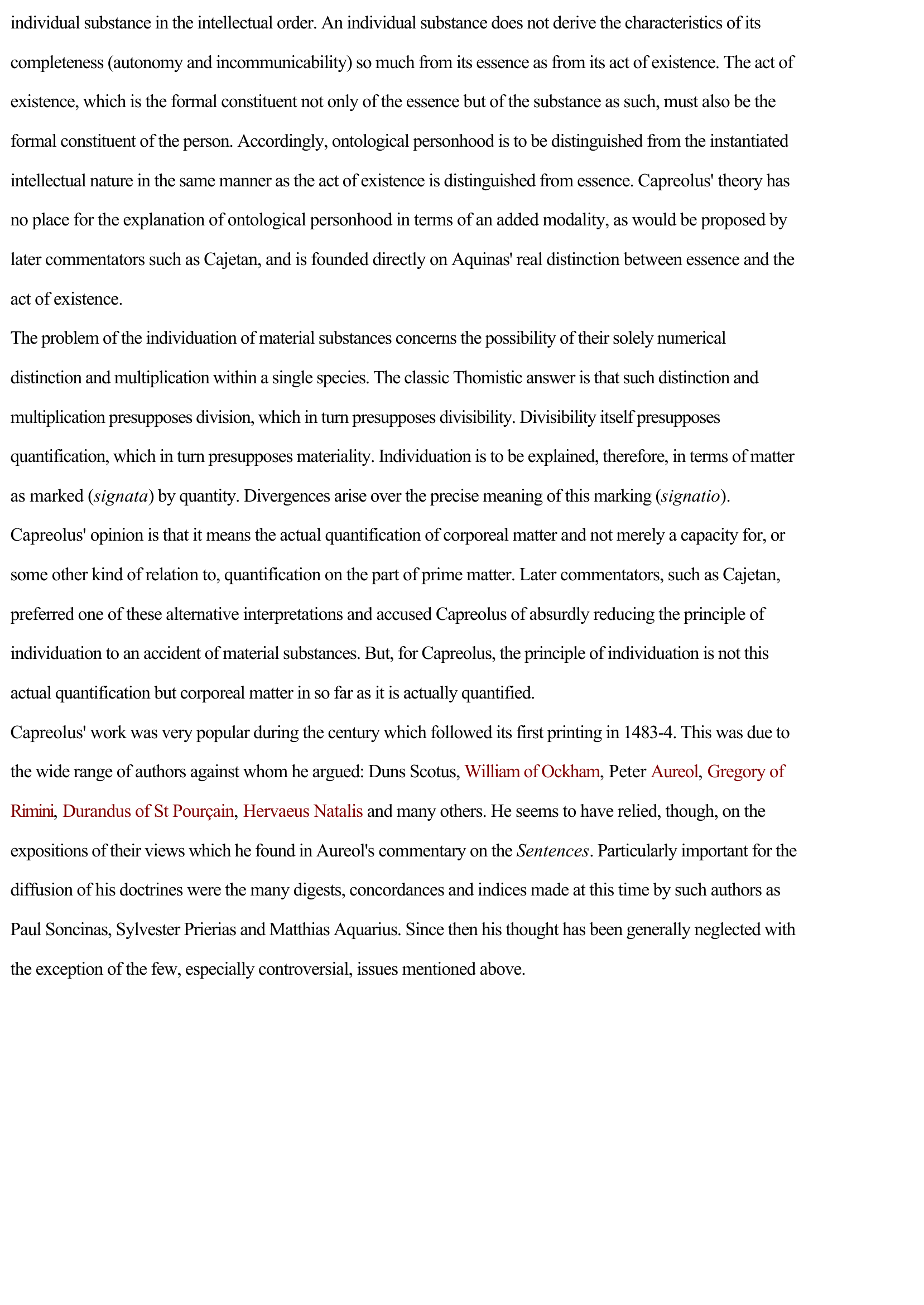Capreolus, Johannes
Publié le 22/02/2012

Extrait du document
«
individual substance in the intellectual order.
An individual substance does not derive the characteristics of its
completeness (autonomy and incommunicability) so much from its essence as from its act of existence.
The act of
existence, which is the formal constituent not only of the essence but of the substance as such, must also be the
formal constituent of the person.
Accordingly, ontological personhood is to be distinguished from the instantiated
intellectual nature in the same manner as the act of existence is distinguished from essence.
Capreolus' theory has
no place for the explanation of ontological personhood in terms of an added modality, as would be proposed by
later commentators such as Cajetan, and is founded directly on Aquinas' real distinction between essence and the
act of existence.
The problem of the individuation of material substances concerns the possibility of their solely numerical
distinction and multiplication within a single species.
The classic Thomistic answer is that such distinction and
multiplication presupposes division, which in turn presupposes divisibility.
Divisibility itself presupposes
quantification, which in turn presupposes materiality.
Individuation is to be explained, therefore, in terms of matter
as marked ( signata ) by quantity.
Divergences arise over the precise meaning of this marking ( signatio ).
Capreolus' opinion is that it means the actual quantification of corporeal matter and not merely a capacity for, or
some other kind of relation to, quantification on the part of prime matter.
Later commentators, such as Cajetan,
preferred one of these alternative interpretations and accused Capreolus of absurdly reducing the principle of
individuation to an accident of material substances.
But, for Capreolus, the principle of individuation is not this
actual quantification but corporeal matter in so far as it is actually quantified.
Capreolus' work was very popular during the century which followed its first printing in 1483-4.
This was due to
the wide range of authors against whom he argued: Duns Scotus, William of Ockham , Peter Aureol , Gregory of
Rimini , Durandus of St Pourçain , Hervaeus Natalis and many others.
He seems to have relied, though, on the
expositions of their views which he found in Aureol's commentary on the Sentences .
Particularly important for the
diffusion of his doctrines were the many digests, concordances and indices made at this time by such authors as
Paul Soncinas, Sylvester Prierias and Matthias Aquarius.
Since then his thought has been generally neglected with
the exception of the few, especially controversial, issues mentioned above..
»
↓↓↓ APERÇU DU DOCUMENT ↓↓↓
Liens utiles
- PAN CONTRE LE TEMPS Johannes Robert Becher - résumé
- SONNETS (résumé) Johannes Robert Becher
- JOHANNES le séducteur [Johannes Forföreren] de Sôren Kierkegaard
- HENNO Johannes Reuchlin
- MOULIN A LÉVINE (Le) Johannes Bobrowski (résumé et analyse)

































